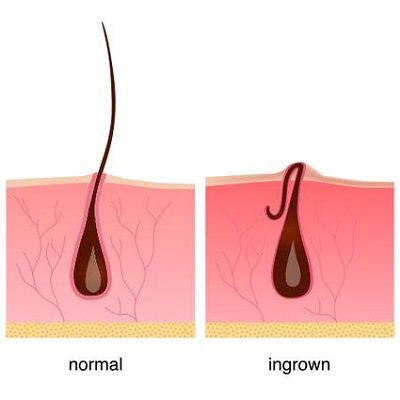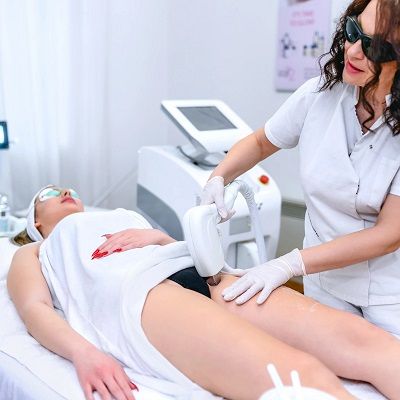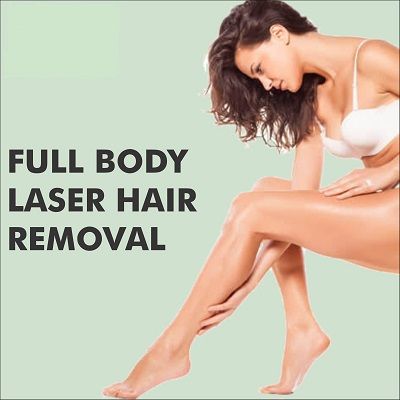
Ingrown Hair: What is It?
An ingrown hair has grown into your skin rather than out of it.
A Hair follicle can get clogged by dead skin. This causes hair to grow horizontally under your skin instead of up and out. If you cut curly hair too short, the pointed end might puncture your skin, resulting in ingrown hair.
Symptoms of an Ingrown Hair:
Your skin is irritated by ingrown hair.
- A raised red lump (or collection of bumps) that looks like a bit of pimple.
- A boil-like sore.
- Itching.
- Discomfort.
There might be pus inside the lumps. Otherwise, you can see the hair under the skin that is causing the trouble.
Ingrown Hair in General Parts:
Ingrown hairs are common in regions where you shave, such as your:
- Face and neck.
- Scalp.
- Legs.
- Armpits.
- Chest.
- Back.
- Pubic area.
Causes of Ingrown Hair:
An ingrown hair can occur to anybody. However, persons with extraordinarily curly or rough hair are more likely to practice this issue. Curly hair, particularly after it’s been bald or clipped, is more level to turn back and correct your skin.
People who have a high amount of particular sex hormones may have more hair than usual. This can make individuals more prone to ingrown hairs, particularly after shaving.
Many persons with thick or curly hair suffer from pseudofolliculitis, a kind of ingrown hair. This collection of tiny bumps, sometimes called “razor bumps,” is common on the beard area after shaving, plucking, or trimming to eliminate hair. The regrown hair has a harsher base, allowing it to probe around through the skin and become entangled below the layer.
Problems of Ingrown Hair:
An ingrown hair will usually go on its own. However, if it does not, you might have:
- An infection.
- Discolored skin.
- Scarring.
Some experts think that ingrown hairs cause pilonidal cysts. These hair and skin debris pockets are most commonly found near the base of your spine, between your buttocks. They might become inflamed and uncomfortable. They may need surgery to be treated.
Treatment for Ingrown Hair:
How to Treat Ingrown Hair on the Female Face? If an ingrown hair bothers you or becomes infected, your doctor can release it with a tiny incision made with a sterile needle or scalpel. They may also prescribe medication such as:
- Asteroids to be applied to your skin to reduce swelling and irritation.
- Retinoids (Retin-A) remove dead skin cells and diminish skin color changes.
- Antibiotics are taken orally or used topically to treat an infection.
Prevention of Ingrown Hair:
When shaving, use these techniques to avoid ingrown hairs:
- Tease out ingrown hairs by rubbing your face in a round movement with a moist washcloth or an exfoliating scrub every day.
- Shave with a sharp, single-bladed razor.
- While shaving, wash your skin using warm water and apply a lubrication gel.
- Shave in the way your hair grows.
- Utilize as few razor strokes as feasible. This reduces the possibility of hair sliding rear into the skin.
- After each stroke, wash the blade with water.
- Avoid shaving too near to your skin. If possible, leave a little stubble.
- Keep your electric razor just above the level of skin if you’re utilizing one.
- After shaving, apply a cold washcloth to the skin to calm it.
You can also experiment with different hair removal treatments that are less likely to result in ingrown hairs. These include lotions that disintegrate hair and Laser Hair Removal in Dubai or electric current (electrolysis) treatments that permanently eliminate the hair follicle.
When should You see a Doctor?
Ingrown hairs are often managed at home and do not need medical treatment. There are a few instances where a doctor may be required to intervene.
If the ingrown hair gets unhealthy, the pimples may expand and fill with pus. They can be more red and inflamed than they have ever been. Individuals who have ingrown hairs in extensive regions may also need medical treatment.
If an ingrown hair gets infected, the person should seek medical attention. A doctor may advise you to apply antibiotic ointments, topical corticosteroids, or medicated washes to the affected region. A doctor may refer a patient to a skin expert in extreme circumstances.
Conclusion!
Ingrown facial hair can be aggravating and uncomfortable, but you can lessen your chances of developing this issue with the correct products and procedures. Some persons are predisposed to ingrown hairs and may not react to home remedies. If you cannot self-treat, Laser Hair Removal in Dubai, Abu Dhabi & Sharjah may provide long-term benefits and relief from ingrown hairs. Consult your doctor about this, as well as other treatment choices for this illness.


































